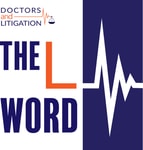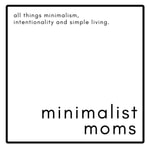Doctors and Litigation: The L Word – Details, episodes & analysis
Podcast details
Technical and general information from the podcast's RSS feed.

Doctors and Litigation: The L Word
Gita Pensa MD
Frequency: 1 episode/76d. Total Eps: 31

Recent rankings
Latest chart positions across Apple Podcasts and Spotify rankings.
Apple Podcasts
🇺🇸 USA - medicine
28/07/2025#99🇺🇸 USA - medicine
27/07/2025#97🇨🇦 Canada - medicine
26/07/2025#90🇺🇸 USA - medicine
26/07/2025#87🇺🇸 USA - medicine
25/07/2025#76🇺🇸 USA - medicine
20/07/2025#89🇺🇸 USA - medicine
19/07/2025#66🇺🇸 USA - medicine
18/07/2025#58🇺🇸 USA - medicine
17/07/2025#90🇨🇦 Canada - medicine
16/07/2025#94
Spotify
No recent rankings available
Shared links between episodes and podcasts
Links found in episode descriptions and other podcasts that share them.
See allRSS feed quality and score
Technical evaluation of the podcast's RSS feed quality and structure.
See allScore global : 62%
Publication history
Monthly episode publishing history over the past years.
Introduction: What’s the Big Deal?
Season 1 · Episode 1
samedi 6 avril 2019 • Duration 17:48
Litigation affects the majority of physicians during their career -- in other words, good doctors often get sued. Yet the topic is largely a taboo one among physicians. In this first episode, Dr. Gita Pensa introduces the topic of litigation stress, interviews physicians who have been sued about what makes the experience difficult, and talks to Louise Andrew, MD JD about why this topic needs to be addressed.
Dr. Pensa successfully defended a multi-million dollar malpractice case spanning twelve years, including two jury trials. She speaks nationally on the topic of litigation and litigation stress, and has been a practicing physician for nearly 20 years. She is currently academic faculty at the Alpert Medical School of Brown University. However, these opinions are her own, and this podcast does not express the views of Brown University, her employers, or any affiliated hospital systems.
More about Dr. Pensa: doctorsandlitigation.com
Also available here on Apple podcasts.
Theme music by BenJamin Banger (Instagram: @BenJaminBanger)
First Steps: You‘ve Been Served
Season 1 · Episode 2
jeudi 9 mai 2019 • Duration 25:20
In the second episode of Doctors and Litigation: The L Word, we discuss the very first steps in litigation, starting with when you are given notice of a medical malpractice lawsuit. Experts Dr. Sara Charles, Dr. Ilene Brenner, and Dr. Louise Andrew lend their expertise; physician voices describe their experiences.
More about author Dr. Pensa: doctorsandlitigation.com
Topics discussed:
- The emotional impact of the first steps into litigation (and the intended effect from the plaintiff's attorneys), as well as some advice on how to frame it in your mind
- First action basics: contacting your insurance carrier, and finding an attorney to represent you
- Board of Licensure/Department of Health investigations that begin automatically in some states when litigation starts
- The beginnings of the 'discovery' process
- Who to talk to...and who not to talk to
- Do's and definite don'ts in the first stages
Resources mentioned:
"How to Survive a Medical Malpractice Lawsuit", by Ilene Brenner MD
"Adverse Events, Stress and Litigation: A Physician's Guide", by Sara Charles, MD and Paul Frisch, JD
Litigation stress website with free resources: www.physicianlitigationstress.org (founded by Dr. Sara Charles; note host Gita Pensa MD serves on the voluntary advisory board)
Dr. Louise Andrew, MD JD: www.mdmentor.com
Theme music by BenJamin Banger (Instagram: @BenJaminBanger)
Special Episode: Litigation Risk and COVID-19
Season 1 · Episode 11
dimanche 5 avril 2020 • Duration 32:32
Many listeners have sent in questions about litigation in this new era of COVID-19. They are infuriated after seeing advertisements from plaintiff's attorney firms already soliciting COVID-19 cases, while physicians and other front line health care providers risk our lives and the health of our families in an unprecedented crisis --when litigation should be the last thing we have to worry about. Physicians now wonder how protected will they be if their usual practice is disrupted, and there are delays in diagnosis or treatment. Or what if we send a patient with suspected COVID-19 home when they are stable, but they later worsen or die due to the unpredictability of this horrible virus? What if we are forced to ration ventilators or other scarce resources? Or if we are asked to practice outside our usual scope -- if an OB-Gyn is now working on the medicine floors, or a general internist is now working in the ICU, and there is an adverse event in that setting?
In this episode, Dr Pensa speaks with two malpractice defense attorneys about some general principles, and gets some reassurance.
Some states are adopting emergency measures that provide practitioners with additional protection, changing the standard for civil cases to 'gross negligence or willful misconduct'. But this does not mean the provider has blanket immunity from being sued at all. Lawsuits might still be filed that will need to be defended, even with this new standard (though likely fewer cases will be brought forth, because they will be much harder for plaintiffs to prevail). Because lawsuits can still be filed, and there are large costs associated with defending them from the start, it is imperative that you are properly insured for however your practice changes in this pandemic. We discuss considerations for retirees and volunteers, physicians who are changing the manner in which they see patients, and the importance of documenting circumstances in general.
More about Dr. Pensa: doctorsandlitigation.com
Special Episode: The RaDonda Vaught Case
Season 1 · Episode 12
lundi 11 avril 2022 • Duration 53:41
In this special episode, Dr. Pensa has a conversation with attorney T. Marc Calvert about the criminal trial of RaDonda Vaught, a Vanderbilt nurse who was found guilty of negligent homicide due to a medication error.
Attorney Calvert has specialized in medical malpractice defense for over thirty years, and brings a nuanced perspective to a case which has rocked the medical world since the verdict in March 2022. Some of the questions we discuss:
- Will we see more criminalization of adverse events and medical error after this trial?
- Will malpractice insurance cover the costs of a criminal defense?
- What is the institutions's role in this error, and why are they not bearing more responsibility?
- What might happen to safety culture and the self-disclosure of error in the wake of this verdict?
- What lessons should we take away from this terrible and tragic event?
Life After Litigation: Part One
Season 1 · Episode 13
mercredi 10 mai 2023 • Duration 24:09
Although you might expect life to go back to 'normal' as soon as the litigation process is complete, it often doesn't work that way. Lingering distress, if left unaddressed, can lead to behaviors like over-documenting or over-testing, avoidance of certain procedures or case types, PTSD symptoms, disillusionment, burnout, and career abandonment. In part one of 'Life After Litigation', Dr. Gita Pensa speaks with Tracy Sanson MD, Stacia Dearmin MD, and Marge Paccione, PhD, about their insights.
Life After Litigation: Part Two
Season 1 · Episode 14
jeudi 8 février 2024 • Duration 52:00
Dr. Pensa tells the story of her own life after litigation in an interview with Dr. Mel Herbert.
This is the last episode of Season One. But follow along -- a new season is in the works! We'll talk about topics at the intersection of litigation, coaching, risk, and medicine -- and how to stay human through all of it.
The EMR Audit Trail: Friend and Foe
Season 2 · Episode 1
samedi 9 mars 2024 • Duration 29:59
In this first episode of Season 2, Dr. Pensa talks with attorney Saira Pasha, an EMR audit trail expert. What else besides the words in your chart does your electronic medical record track? Are 'secure messages' discoverable? (Spoiler: yes, they can be!) How can an audit trail help your case -- or hurt it? How does an audit trail expert 'read between the lines' of who's looking at what entries in the record, and when, and for how long?
Take home points:
- The EMR creates a trail that tracks not only your substantive words on the chart, but evidence of all the people who were in a given chart, at what time, looking at what, for how many seconds or minutes, what they did next in the chart, whether a template or smart phrase was deployed. It tracks and times views, edits, additions, deletions, changes, and any printing or searches. These are not part of the initial requested 'medical record,' but can be obtained through the request of an EMR audit trail.
- The timing of changes to the record can imply that charting was slanted in a way to be defensive or misleading (or at least, a plaintiff’s attorney is going to try to do that, even if your intention was well-meaning.)
- Attorneys may infer the importance of a part of the record by seeing how many people were in a chart at a given time, and what they were all looking at, for how long. This information can act like a big red arrow pointing at a specific medication order or radiology result, for example, even if there is no explicit mention of it in anyone's notes.
- Secure messages, FYI's, Best Practice Advisories, and other prompts are all discoverable (with a little sleuthing) as part of an EMR audit within a few years of their appearance in the chart.
- If you cosign notes using a template that suggests you did a substantive review of another clinician's care (such as an APP or midwife), be mindful of the fact that the EMR tracks how long you spent in that note, or reviewing that patient's chart or imaging.
Dr. Pensa references this 2021 case in which efforts to alter EMR records were exposed.
More about Dr. Pensa and how to contact her can be found at doctorsandlitigation.com.
Help Resistance
Season 2 · Episode 2
jeudi 4 avril 2024 • Duration 27:20
This month, we're exploring the topic of 'help-resistance' in physicians. Why do we acknowledge the need to maintain and optimize the health of our bodies, but scoff at doing the same for our minds or mental well-being? Why do support programs flounder from lack of participation? Why is the notion of even 'self-help' so foreign and...icky?
In this 'listicast', Dr. Pensa explores the top ten(ish) reasons for help-resistance in physicians. This has practical implications as to why physicians often do not access support programs, and why they may resist external or even self-help instruction.
These concepts are each briefly explored, with particular focus on the physician experience (though, of course, other clinicians and high achieving professionals may have similar experiences.)
Ten Reasons Behind 'Help-Resistance' in the Physician
1) Internal core beliefs and identity of the physician (and traits including exceptionalism and perfectionism)
2) External collective beliefs and medical culture
3) Inability to recognize when help is indicated (or avoidance coping)
4) Lack of awareness of various modalities of 'help' (what does 'help' even mean?)
5) Family of origin (or culture of origin) taboos; expectations of the family high achiever
6) Absent help infrastructure (or a hush-hush help infrastructure)
7) Terminal uniqueness
8) Fear (of discovery, judgment, licensure/discipline threats)*
9) Friction
10) Change resistance and inflexible thinking (or dichotomous thinking)
*To learn more about Dr. Lorna Breen, the Dr. Lorna Breen Heroes Foundation, and their work addressing the origins of this fear, go to https://drlornabreen.org/
More about Dr. Pensa: https://doctorsandlitigation.com/about-gita-pensa
Disclaimer: Dr. Pensa is not a therapist or psychiatrist, and this discussion is not meant as treatment for any specific mental health disorder. This list is based on Dr. Pensa's personal and professional experience, and her coaching work with other physicians in the realm of litigation stress and burnout.
Medical Board Complaints and Investigations
Season 2 · Episode 3
mardi 7 mai 2024 • Duration 48:23
Medical Boards (or state Departments of Licensure and Discipline) are charged with keeping the public safe from unskilled, impaired, or unscrupulous doctors (or other licensed clinicians, each of which has their own board). While this is an important and necessary role, it is also not uncommon for well-meaning or "innocent" doctors to become the subject of investigations due to complaints from patients, other doctors (including competitors), or from the Board itself. Malpractice litigation or adverse event reporting may also trigger Board investigations as well.
This process is usually opaque, and clinicians have a poor understanding of how their Board works, who is on it, how those people are appointed, who they answer to, what happens when complaints are investigated, the possible ramifications of board decisions, and how to best prepare themselves in the case of a complaint. A naive physician can unwittingly worsen their situation, and an attorney is usually recommended to help in navigating the process. Depending on the complaint, your malpractice policy may help defray the cost of this.
Important points to note: processes for Boards differ from state to state. Typically anyone can lodge a complaint against a physician with the Board, for nearly any reason, and every complaint needs to be addressed in some way. These complaints can be anonymous in some states, and can range from serious to trivial. There is generally no statute of limitations for these complaints. Consider this podcast an invitation to learn more details about your state's medical board and their processes.
Board investigations and evaluations have been linked to physician suicide, and Dr. Pensa cites a study from 2014 in which nearly 5% of physicians referred to the Tennessee medical board for fitness-for-duty evaluations either seriously attempted or completed suicide. She also mentions a John Oliver 'Last Week Tonight' episode about state medical boards that paints a bleak picture of state medical boards' ability to root out dangerous doctors. The job of the medical board is indeed a difficult one, and Dr. Pensa makes the case for more transparency, accountability, and feedback mechanisms given their power and the wide-reaching impact of their decisions. Changes would need to be made at a legislative level, as the Board is typically a governmental/political organization.
Dr. Gita Pensa gives an introduction to Medical Board investigations and complaints in this episode with Guillermo Beades, Esq. Mr. Beades teaches and publishes regularly in an effort to educate physicians and other clinicians about healthcare law.
You can find an article of his about this topic here in Medical Economics.
Guillermo J. Beades, Esq., is a Partner in Frier Levitt’s Healthcare Litigation Department and Co-Chairs the Firm’s Insurance Defense Group. He represents healthcare professionals in a broad range of administrative, civil and criminal healthcare matters. Mr. Beades has extensive litigation experience before state licensing authorities and Medical Boards (e.g., NJ BME, OPMC), federal healthcare agencies (e.g., OIG, CMS, DEA) and state healthcare agencies (e.g., NJ Medicaid Fraud Division, NY OMIG). He represents practices and healthcare professionals in matters concerning credentialing and denial of privileges, administrative discipline, Medicare audits, hospital fair hearings, post-payment demands and pre-payment audits.
Mindfulness in Litigation
Season 2 · Episode 4
vendredi 14 juin 2024 • Duration 37:35
There is a wealth of research to support a positive effect of mindfulness on the mental health and overall well being of physicians and other clinicians. This is well documented in spheres like burnout, job satisfaction, and overall well being (sample references below). Today on the podcast we introduce mindfulness as a cognitive tool that can be useful in litigation preparation as well.
Today's guest, Douglas Morgan, is a seasoned medical malpractice defense attorney who incorporates the teaching of mindfulness into his work with clinician defendants.
Resources mentioned:
- Apps: JKZ, Plum Village, Headspace, Ten Percent Happier and Insight Timer (Dr. Pensa and Attorney Morgan have no financial ties)
- Mindfulness Based Stress Reduction and the work of Jon Kabat-Zinn
- Teachings of Thich Nhat Hanh
References:
- JAMA Internal Medicine. (2019). Effect of a Mindfulness-Based Intervention on Burnout Among Physicians: A Randomized Clinical Trial.
- The Lancet. (2020). Mindfulness in Health Care Workers: Benefits Beyond Burnout.
- Journal of Occupational Health Psychology. (2017). Mindfulness-Based Stress Reduction for Medical Students and Physicians: A Systematic Review.
- Annals of Internal Medicine. (2014). Mindfulness-Based Stress Reduction for Health Care Providers: A Systematic Review.









